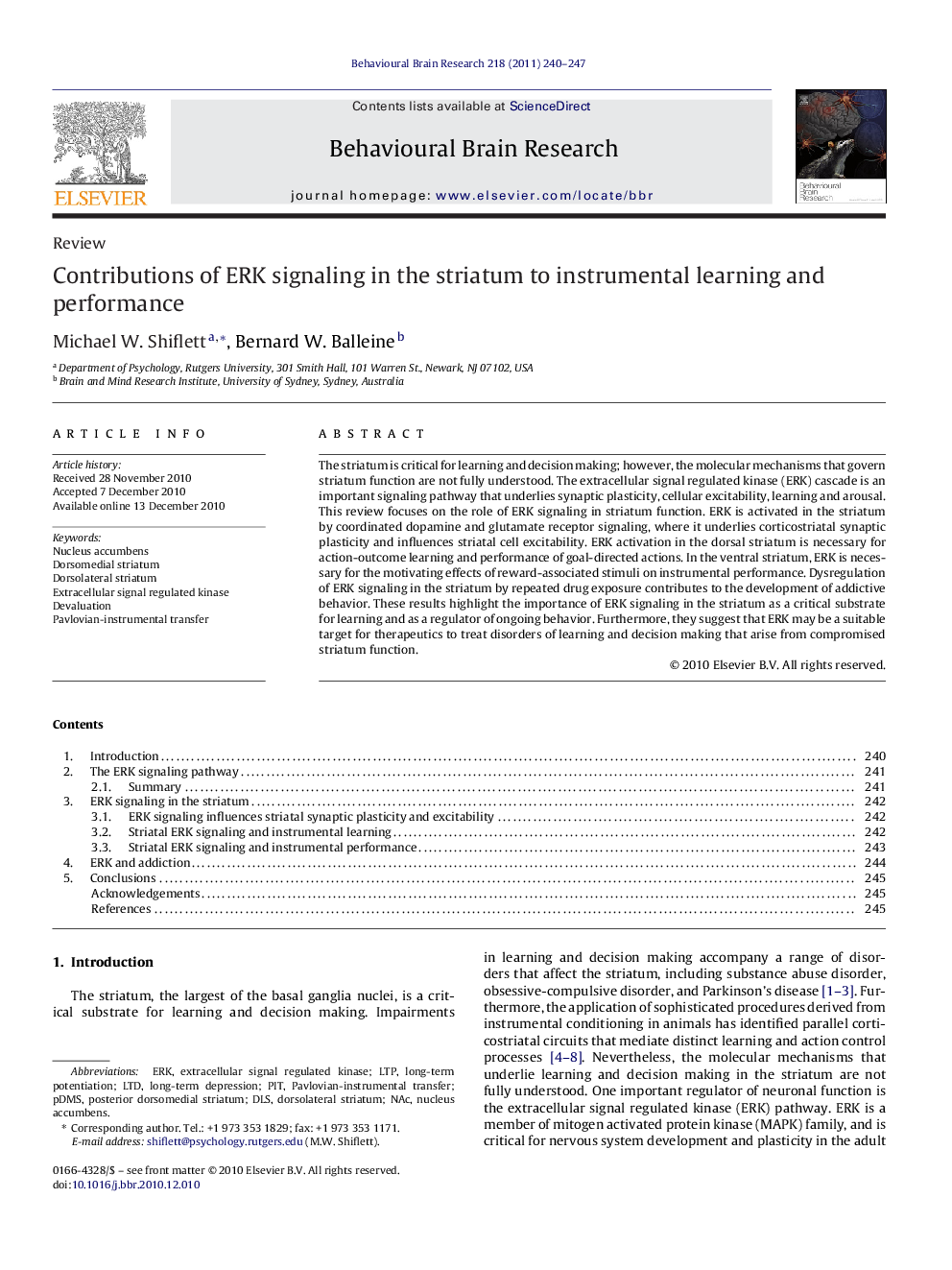| Article ID | Journal | Published Year | Pages | File Type |
|---|---|---|---|---|
| 6259950 | Behavioural Brain Research | 2011 | 8 Pages |
The striatum is critical for learning and decision making; however, the molecular mechanisms that govern striatum function are not fully understood. The extracellular signal regulated kinase (ERK) cascade is an important signaling pathway that underlies synaptic plasticity, cellular excitability, learning and arousal. This review focuses on the role of ERK signaling in striatum function. ERK is activated in the striatum by coordinated dopamine and glutamate receptor signaling, where it underlies corticostriatal synaptic plasticity and influences striatal cell excitability. ERK activation in the dorsal striatum is necessary for action-outcome learning and performance of goal-directed actions. In the ventral striatum, ERK is necessary for the motivating effects of reward-associated stimuli on instrumental performance. Dysregulation of ERK signaling in the striatum by repeated drug exposure contributes to the development of addictive behavior. These results highlight the importance of ERK signaling in the striatum as a critical substrate for learning and as a regulator of ongoing behavior. Furthermore, they suggest that ERK may be a suitable target for therapeutics to treat disorders of learning and decision making that arise from compromised striatum function.
Research highlightsⶠERK signaling regulates learning, memory, synaptic plasticity and arousal. ⶠDorsal striatum ERK mediates goal-directed learning and performance. ⶠVentral striatum ERK mediates Pavlovian-instrumental transfer. ⶠERK dysregulation may underlie addiction.
